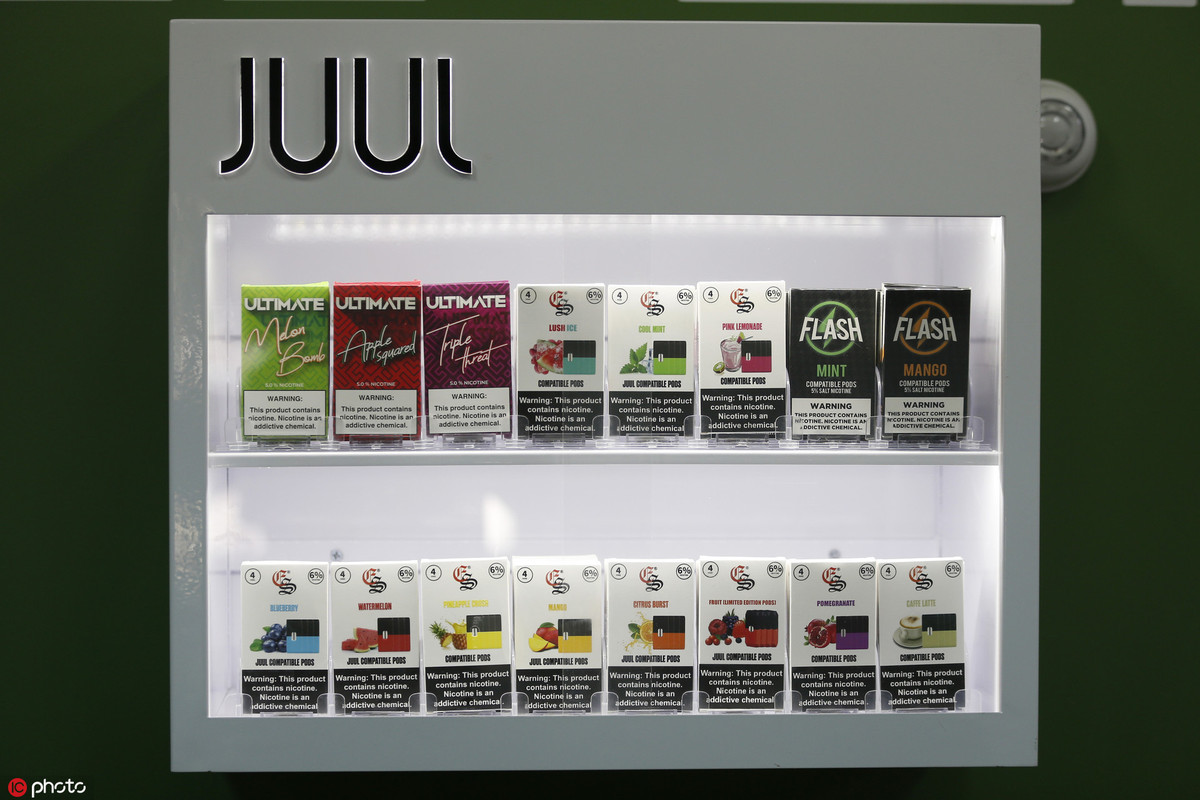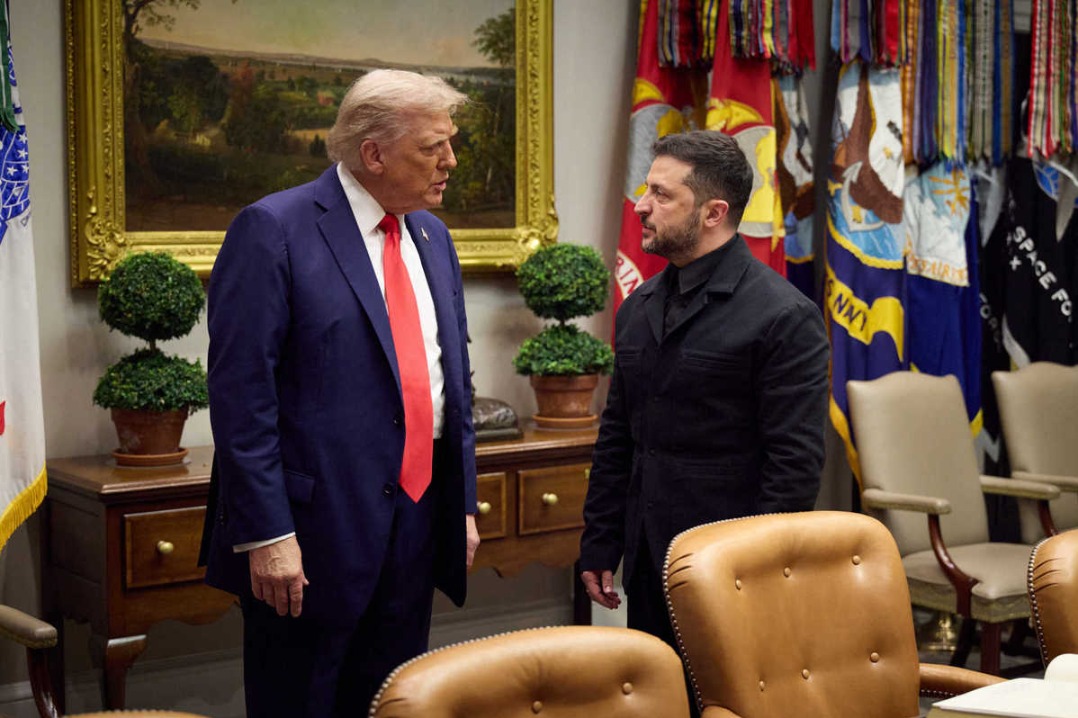US mulls flavored e-cigarette ban


US President Donald Trump said Wednesday that his administration will seek to ban all flavors used in e-cigarettes amid growing concern about their health hazards and use by teenagers.
The proposal would ban popular fruit flavors, as well as menthol and mint e-cigarettes from stores and online sellers, leaving just tobacco-flavored products.
The administration's move comes as health officials are investigating more than 450 cases of lung disease across the US that some officials believe were triggered by vaping. Six deaths have been attributed to the disease, the exact cause of which hasn't yet been discovered.
Trump described vaping as a "new problem in the country''. "We can't allow people to get sick. And we can't have our kids be so affected," he said.
Trump made his comments after a meeting in the Oval Office with Health and Human Services Secretary Alex Azar and acting Food and Drug Administration (FDA) Commissioner Ned Sharpless.
First lady Melania Trump was in the room, and Trump said she feels "very, very strongly" about the issue because of their 13-year-old son Barron.
Earlier this week, she urged more regulation of vaping products, writing on Twitter: "I am deeply concerned about the growing epidemic of e-cigarette use in our children. We need to do all we can to protect the public from tobacco-related disease and death and prevent e-cigarettes from becoming an on-ramp to nicotine addiction for a generation of youth."
More than 80 percent of underage teens who use e-cigarettes say they chose the product because it comes in flavors they like, according to government surveys.
The administration's proposal would apply only to nicotine vaping products regulated by the FDA. Azar told reporters it will take several weeks to develop the restrictions, which will be subject to public input before taking effect.
He said preliminary data from the 2019 National Youth Tobacco Survey showed a continued, troubling rise in youth e-cigarette use. The data showed more than a quarter of high school students have used e-cigarettes in the past 30 days — up from a little over a fifth in 2018. The overwhelming majority of students said they used fruity or menthol or mint flavors.
Azar said flavored products could apply for FDA permission to re-enter the market. But under agency standards, only products that represent a net benefit to the nation's public health can win FDA approval.
He said the administration would allow tobacco-flavored e-cigarettes to remain available for adult smokers. But he said that if children begin using those products "we will take enforcement action there also".
It is unclear whether vaping companies could take legal action to block a ban on flavors, which would be a major blow to the vaping industry, including companies such as Juul Labs, the dominant e-cigarette maker in the US that has been blamed for a rise in vaping among American teenagers.
"We strongly agree with the need for aggressive category-wide action on flavored products. We will fully comply with the final FDA policy when effective," San Francisco-based Juul said in a statement Wednesday.
Juul sought to curb teen vaping in the US by stopping the sale of mango, fruit, creme and cucumber-flavored pods at brick-and-mortar stores last year, but that has increased Juul's sales of its mint-flavored pods, the New York Post reported Wednesday.
Mint pods now account for 74.1 percent of the company's total sales, up from 35 percent before the other flavors were pulled, according to proprietary Nielsen numbers the newspaper said it obtained. Other Nielsen data shows that the figure represents a 200 percent surge in annualized revenue over the last 10 months to $2.36 billion, according to the Post.
Juul said it kept its mint flavor on the market to help adult smokers quit the habit.
Juul launched its products in more than a dozen countries this week, but the company isn't setting the same limits overseas that it imposed on its e-cigarette sales to combat underage vaping in the US, The Wall Street Journal reported Wednesday.
Overseas, Juul sells online to 18-year-olds, and flavors such as mango, berry and apple are available on store shelves around the world, the newspaper reported.
Juul had $1.27 billion in global revenue, including more than $100 million outside the US, in the first half of 2019, according to people familiar with the matter, according to the Journal.
Juul entered its 19th country Monday with its launch in China, which has the world's most smokers, 350 million, the newspaper reported.
The company's products are available on Chinese e-commerce sites JD and Tmall, a marketplace owned by Alibaba, according to the Journal. Those sites will verify that purchasers are 18 or older, Juul said. Its products aren't yet available in physical stores in China.
E-cigarettes like those made by Juul, which use vapors from liquid pods to deliver nicotine, are still mostly allowed in China, where dozens of e-cigarette startups have raised millions of dollars to launch their products.
The global e-vapor market grew to $15.8 billion in 2018 from $3.7 billion in 2013, according to Euromonitor International. China represented only $750 million of that market last year.
China's National Health Commission has said it plans to introduce legislation to regulate the vaping industry. Shenzhen, which manufactures the majority of e-cigarette devices worldwide, in June banned their use in public places.
































